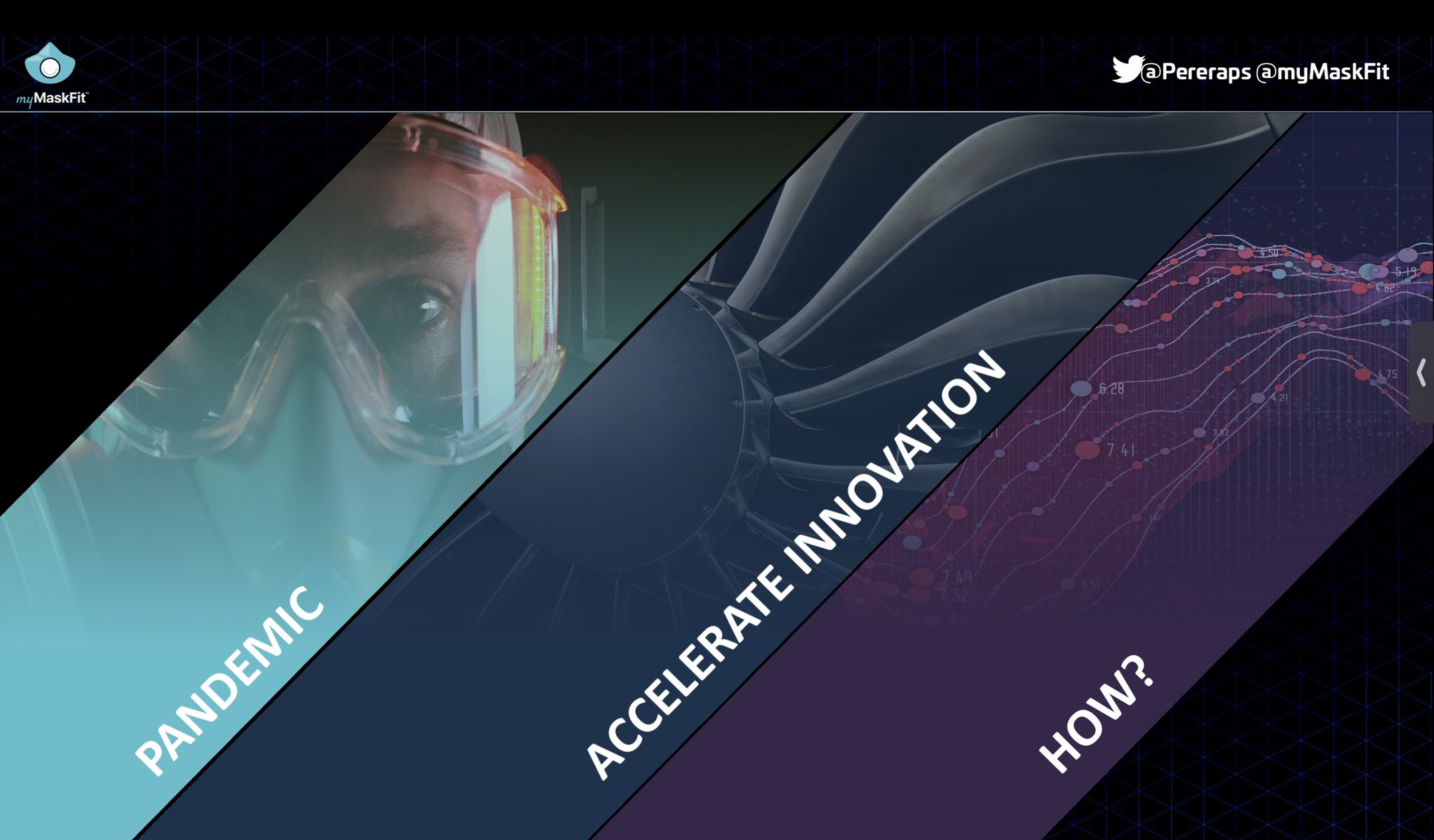
“This distributed manufacturing approach leverages the Manufacturing Made Smarter Testbed to bring a volume production of these mass customization molds and seals in a regulated marketplace. We have also been able to tap into the spare capacity of some of largest manufacturing companies in Aerospace in the UK to support this marketplace and our scale up initiatives, and now are keen that smaller companies are also able to benefit from new demands and have access to the marketplace to create new supply chain networks.”
Paul Perera
Technology Director and project lead at MyMaskFit

The COVID-19 virus is transmitted principally via either inhaled respiratory droplets or physical contact. Due to the impact of pandemic, respiratory protective equipment (RPE) has become a critical component of protecting the healthcare workforce. The filtering facepiece 3 respirator (FFP3) is the most widely RPE used within the UK healthcare system. Unfortunately, according to the study, the overall fit-testing pass rates were provided by 32 hospitals with mean pass rate of 80.74% (Green et al., 2021). To build a reusable and highly customized mask/respirator within BS14873, and EN1827 specifications for medical use in protective the person and those in contact becomes a critical task.
MyMaskFit, inspired by the Ventilator Challenge UK, is trying to accomplish another challenge and provide necessary customized mask to protect those medical workers in not only during the pandemic but also in the long future. Not like the traditional centralized production, within MyMaskFit, there is a distributed supply chain for a variable volume of mass customization of masks. They urgently need numbers of adaptable suppliers with flexible capacities and capabilities to handle the bespoke parts such as moulds and seals with the small batch runs and high runaround time.

The requirements of MyMaskFit led to a more digital solution. By taking advantage of the concept of emerging distributed manufacturing (DM), an iconic hot topic recently year in UK, the project is aiming to develop a digital supply-chain marketplace (DSCM) that is digitally enabled, attractive to buyer and suppliers, and uses insight gained from other marketplace examples to address known barriers and issues. Through such dynamic and distributed supply chain, transforming customer feedback into designs and products can be achieved within days.
The WMG Supply Chain Research Group took a top down approach, and conducted a systematic literature review for the project and developed three theoretical frameworks: the first one explaining the 7 different archetypes of DM, from traditional to emerging models. The second framework illustrates the benefits of DM, from both company, consumer as well as social perspectives. The last one identifies enablers and barriers when applying DM. Other than that, managerial implications in developing DM strategy are suggested.
In the meantime, the WMG Accelerator Team took a bottom up approach, by leveraging their existed knowledge and lesson learned from UK Collaborative Commerce Marketplace (www.ukccm.co.uk), delivered detailed process flows where developed for the supply side and demand side of distributed manufacturing marketplaces as core templates to assess. In addition, a library of existing technology providers and marketplaces examples are listed for further collaborating and benchmarking.
MyMaskFits was then brought into the archetypes as the sample case (as shown in figure below) and proven that all factors meet the classification of cloud-additive manufacturing with a touch of the support of the platform (marketplace) to amplify the on-demand supply chain to a larger scale.

This project will engage over 100 SMEs and tackle ‘Poor levels of adoption’ of Industry 4.0. Removes “ambiguity about what ‘good’ looks like” provides an open-source model and use case for all to build on a foundation which will be proven
Develop innovation landscape by increasing capacity and capability through a digital research centers focused on developing new technologies as part of the Innovation Hubs. Addresses the finding “innovation assets are under-leveraged and not focused enough on supporting IDT start-ups”
Acting to support this program will “inspire the UK’s next industrial revolution and make it a leader” Demonstrate with a clear focus on a COVID-19 challenge how we can adapt the future of manufacturing across all sectors.
Green, S., Gani, A., Bailey, M., Brown, O. and Hing, C. B. (2021) Fit-testing of respiratory protective equipment in the UK during the initial response to the COVID-19 pandemic. Elsevier Public Health Emergency Collection, Vol. 113, pp. 180-186.